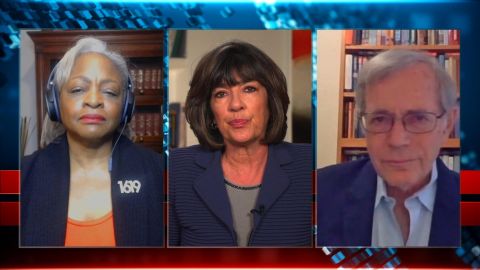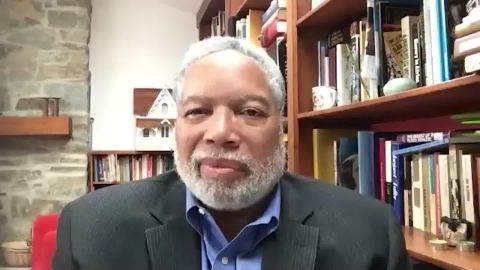Read Transcript EXPAND
CHRISTIANE AMANPOUR: Where do you sort of feel we are in your line of investigation?
MALCOLM GLADWELL, HOST, “REVISIONIST HISTORY”: Well, I remember when I was writing my last book “Talking to Strangers,” at the very beginning I have a line about — which is organized around the case of Sandra Bland, one of most high-profile cases of police violence involving an African-American. And I have a line about how I had gotten sick about — of the fact that every time one of these cases happens, we pay attention for a couple of few days and then we move on. And I say, and I don’t want to move anymore. At the time, I was — when I wrote that line, I was profoundly pessimistic. But now, I feel like there’s something about this moment where no one wants to move on, and this is the most encouraging thing I’ve seen in my lifetime when it comes to race relations in America. I mean, it’s — I honestly feel something of genuine importance is happening right now.
AMANPOUR: That’s really, really heartening to hear. And because you’re talking about Sandra Bland, which, as you say correctly, bookends your book “Talking to Strangers.” You wrote on page 6, prejudice and incompetence go a long way towards expanding social dysfunction in the United States. Police officers still kill people in this country, but those deaths no longer command the news. I suspect that you may not have had to pause for a moment, you may have had to pause for a moment to remember who Sandra Bland was. We put aside those controversies after a decent interval and move on to other things. Again, are you really convinced, and what convinces you, that this terrible spate of killings, you know, culminating — well, not culminating but George Floyd was really — I mean, just — as people have called it, an 8- minute 46-second public lynching for the whole world to see. Shortly after that of course, Rayshard was killed in Atlanta. So, I mean, still goes on. What is it though that makes you think this is, to quote you, a tipping point?
GLADWELL: Because what typically happens in these cases, and, you know, the list of these cases is a mile long. And what typically happens is, we have a discussion about the particulars of the case and a discussion about what the victim may have done to bring it on and what the officer may have done to exacerbate it. Was the officer involved racist, a bad cop, et cetera, et cetera? In other words, the discussion is entirely personal. And those kinds of discussions, framing of these issues, are a way of dodging the bigger and more important question, which is about the system that produces these kinds of inequities. For the first time in a long time, I feel like we’re not just content to have a conversation about the individuals, and now, we’re having a conversation about the system.
About This Episode EXPAND
On this Juneteeth, Christiane speaks with historian Eric Foner and author Carol Anderson about why the day is particularly meaningful this year. She also speaks with Malcolm Gladwell about the current moment in race relations. Walter Isaacson speaks with Lonnie Bunch, Secretary of the Smithsonian Institution, about putting the day in historical context.
LEARN MORE


